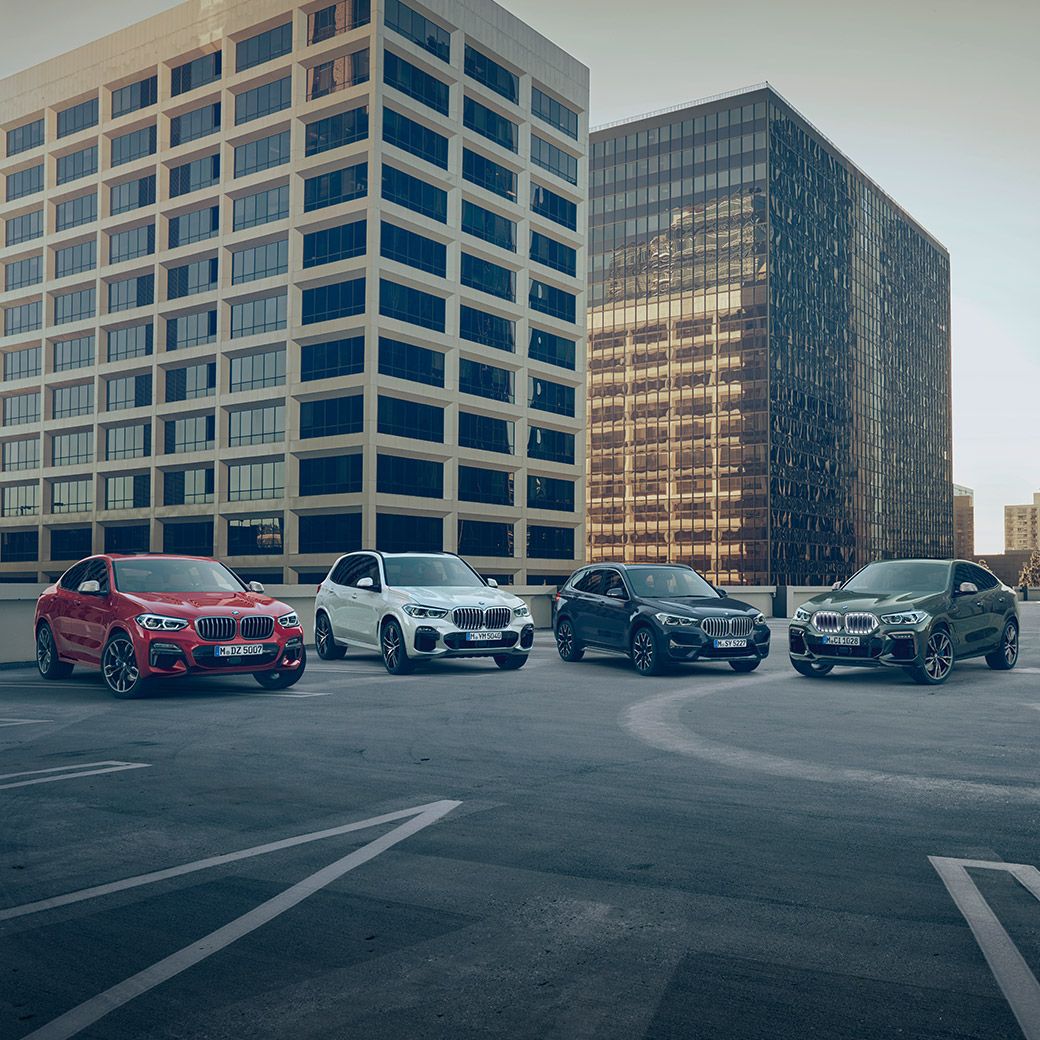Our tool for managing your permission to our use of cookies is temporarily offline. Therefore some functionality is missing.
RESTRAINT. IN UNRESTRAINED PACKAGING.
BMW EfficientDynamics in the BMW X4.
Restraint is not an attribute usually associated with the BMW X4. The one notable exception is the fuel consumption and CO2 emissions. The latest BMW EfficientDynamics technologies and an aerodynamic design guarantee low values without any compromise in performance and dynamics.
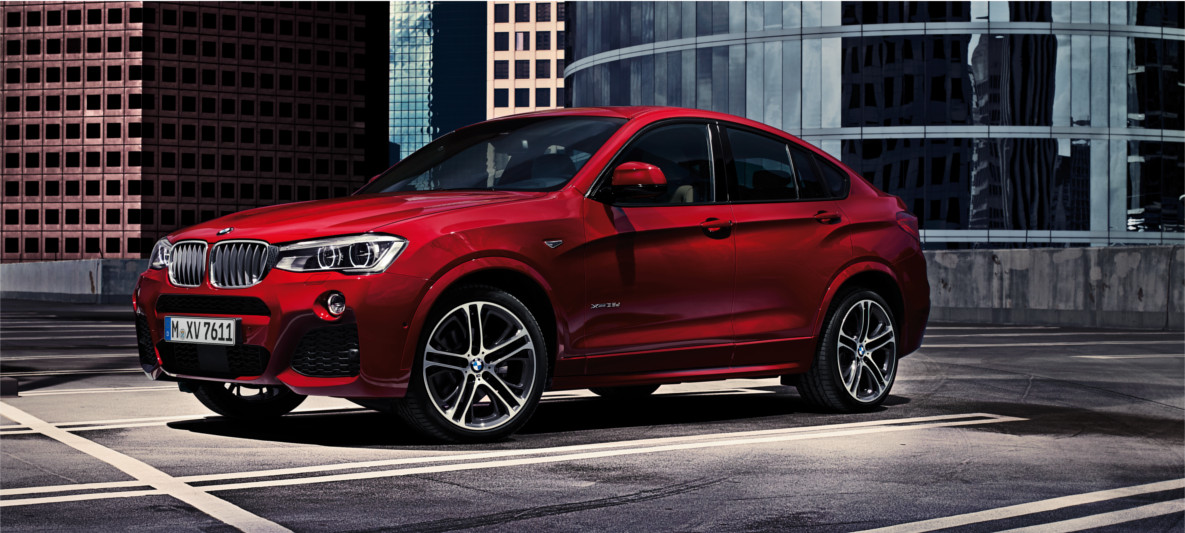
AERODYNAMICS.
The entire vehicle design is testament to the BMW EfficientDynamics philosophy. Every BMW boasts excellent air resistance figures thanks to a range of mutually optimised aerodynamic elements, which in turn has a positive effect on efficiency and fuel consumption.
For example, the flat undercarriage cover with engine compartment and rear axle shield improve the car's aerodynamics. These new casing elements are not only highly advantageous in terms of aerodynamics. They also improve sound insulation and provide greater protection from rust. Further innovations in aerodynamics include the defined rear spoiler lip and the aerodynamically optimised exterior mirrors. The latter improves the acoustics in addition to the aerodynamics.
INTELLIGENT LIGHTWEIGHT CONSTRUCTION.

A wide range of high-tech materials are used in the construction of the BMW X4. These consist of lightweight materials such as aluminium in the front of the car and the chassis, high-strength steel in the body as well as ultra-modern plastics and magnesium.
Intelligent lightweight construction reduces the weight of components and ensures outstanding body stiffness and excellent passive safety for driver and passengers. It also improves the dynamic driving characteristics thanks to an even, well-balanced weight distribution between front and rear axles.

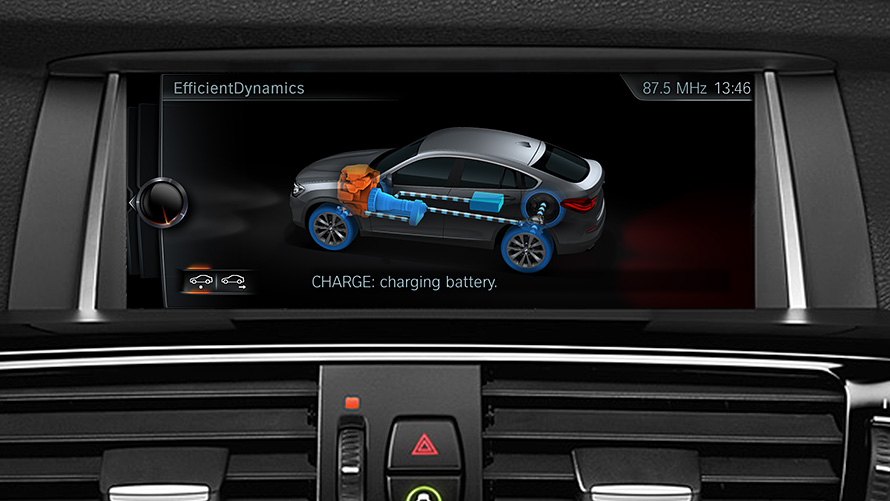
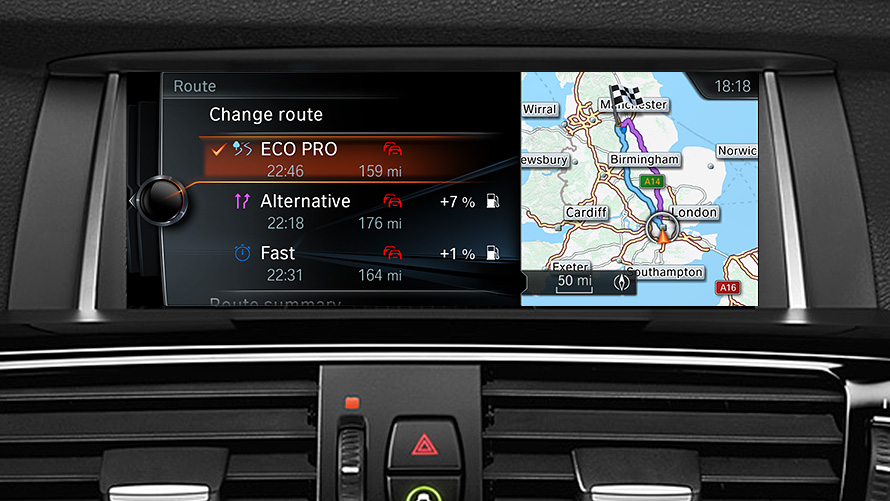
ECO PRO MODE.
ECO PRO Mode helps drivers reduce their fuel consumption by upto 20 percent, depending on their driving style – according to an internal BMW fuel consumption study.
Further savings potential can be achieved through coasting (with 8-speed Automatic Transmission Steptronic only), Route-Ahead Assist and ECO PRO Route (both with the Navigation System Professional only).
Coasting
The coasting function disengages the drive train from the engine and the car coasts with the engine idling. This occurs when the driver releases the accelerator between 50 and 160 km/h without braking, and the Route-Ahead Assist doesn't foresee a need to adjust the speed.
Active Cruise Control with Stop&Go
When used with Active Cruise Control, in ECO PRO Mode the vehicle accelerates up to the desired speed more efficiently after braking.
Route-Ahead Assist
Based on data from the navigation system, the Route-Ahead Assist recognises curves, built-up areas, speed limits and highway exits, and gives the driver tips in advance about when to stop accelerating.
ECO PRO Route
Depending on the traffic situation, the driver's behaviour and road conditions, ECO PRO Route displays the most efficient course to take. The on-board computer shows the percentage of fuel that can be saved by taking the ECO PRO Route.
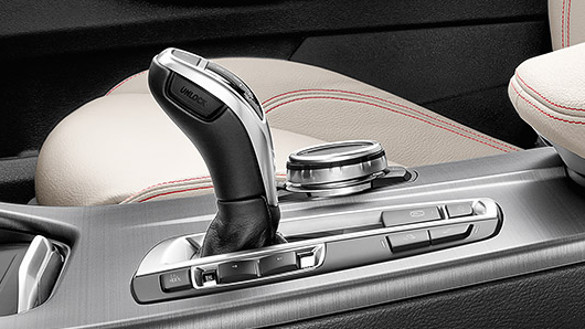
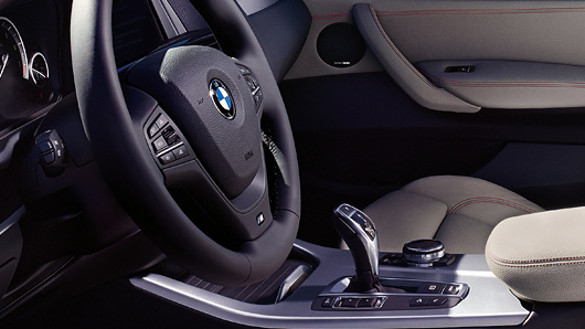
8-SPEED AUTOMATIC TRANSMISSION STEPTRONIC.
The 8-speed Automatic Transmission Steptronic sets a new benchmark in dynamic performance and efficiency and is a key element of BMW EfficientDynamics.
The particularly finely tuned gradation of the gears allows optimum power delivery – at both low and high speeds. This reduces fuel consumption significantly, while allowing the driver to enjoy increased sportiness and dynamic performance. At high speeds in particular, the additional gears reduce engine speed, in turn decreasing both fuel consumption and engine noise.
The converter clutch also helps, even if the car is changed to the manual mode. In combination with the fast engine speed transitions and the precise transmission tuning, it provides a very high level of shift comfort and reduces noise considerably.
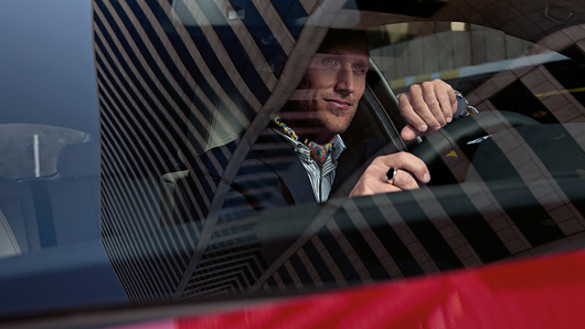
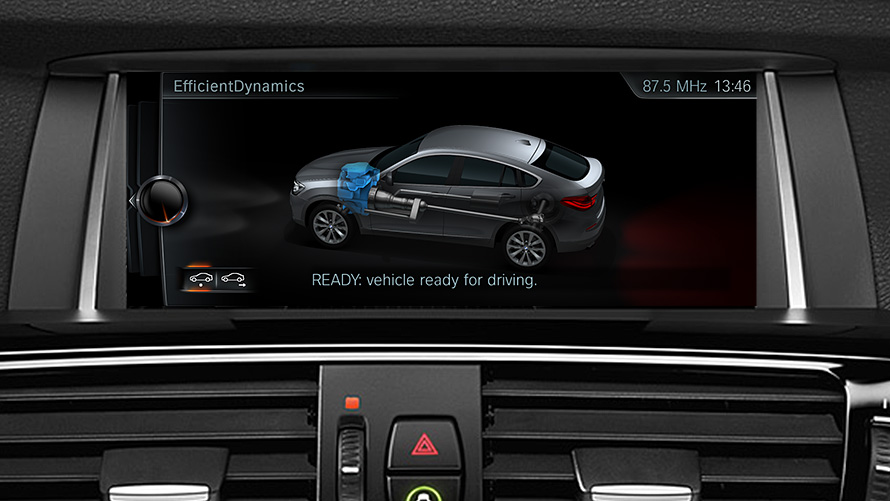
ENERGY MANAGEMENT.
The intelligent energy management in the BMW X4 is provided by a number of standard-feature BMW EfficientDynamics technologies, including the Optimum Shift Indicator, the Automatic Start/Stop function, Electric Power Steering and Brake Energy Regeneration.
The interplay between these technologies ensures the sustainable mobility of tomorrow, today.
Optimum Shift Indicator
Optimal, perfectly-timed gear changes can help save fuel, particularly in urban environments and over long distances. Optimal gear changes equal less fuel consumption. The engine’s electronics system identifies the most efficient gear based on the driving situation and engine speed. An arrow lights up in the Info Display to show when it would be more efficient to shift into a higher or lower gear. The system also recognises when the car is accelerating quickly and will delay its recommendation accordingly until the engine speed has increased. Comparative tests have shown that vehicles with the Optimum Shift Indicator use around 4 percent less fuel.
Automatic Start/Stop function
The Automatic Start/Stop function makes sure that fuel is only used when your car is actually driving. Whilst waiting at traffic lights or in stop-and-go traffic, the Automatic Start/Stop function takes to save fuel by switching off the engine as soon as the car is idling and you have taken your foot off the clutch (manual transmission), or when you brake to a complete standstill.
A signal in the Info Display indicates that the Automatic Start/Stop function is active. As soon as you take your foot off the brake, the engine switches itself back on in a split second so you can continue driving without delay.
The Automatic Start/Stop function never combines driving comfort with safety, as it remains inactive if the engine has not reached its ideal running temperature, the interior has not yet been sufficiently heated/cooled, if the battery level is too low or if you are turning the steering wheel. A central control unit restarts the engine if required, even when the car is at a standstill. For example, if the car starts to roll forward or if the windscreen becomes foggy. The Automatic Start/Stop function can be switched off at any time with the push of a button.
Electric Power Steering
Every time the driver steers, energy is consumed. But why should energy be consumed when the wheel is not being turned? BMW Electric Power Steering is only active when it is needed. Unlike conventional hydraulic steering systems, BMW EPS only uses energy when the wheel is actively being turned. When the steering wheel is static e.g. when driving straight ahead along a highway at high speed, the electric motor is inactive.
Brake Energy Regeneration
Every time the brakes are hit, kinetic energy is generated and until recently this energy went unused. Brake Energy Regeneration takes advantage of this long-overlooked potential. It harnesses the coasting energy that is generated whenever the driver brakes or takes his or her foot off the accelerator and turns it into electricity. This electricity is then used to charge the car battery. The intelligent energy management system means that the alternator no longer needs to run constantly, which reduces the strain on the generator. The result is reduced fuel consumption and increased performance. In other words, classic BMW EfficientDynamics.

